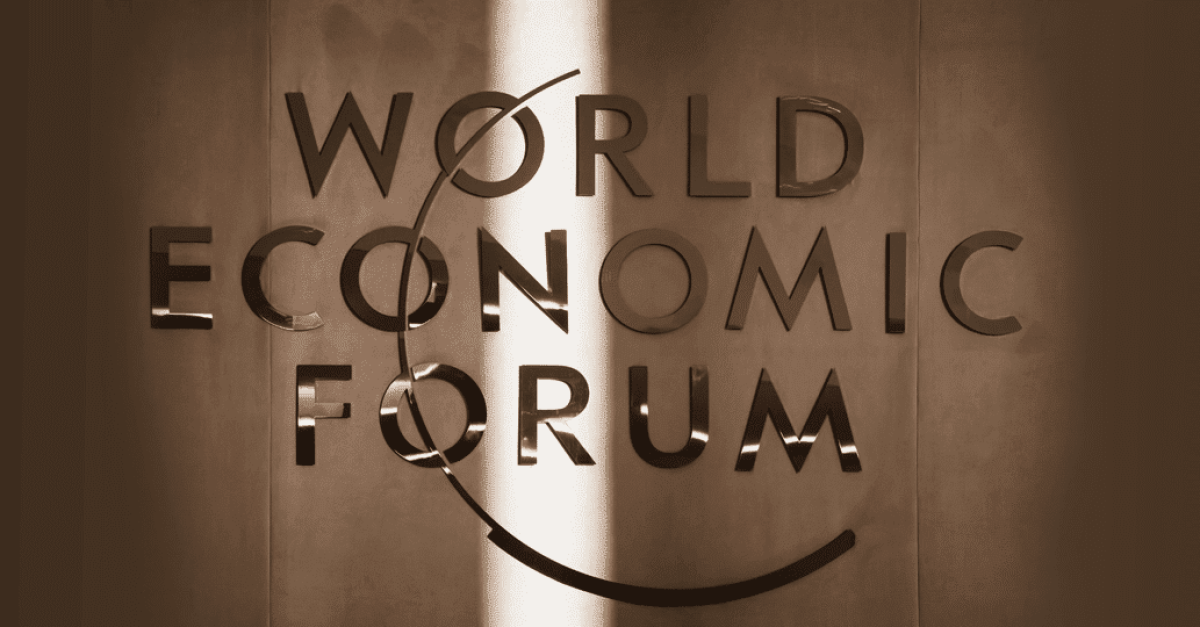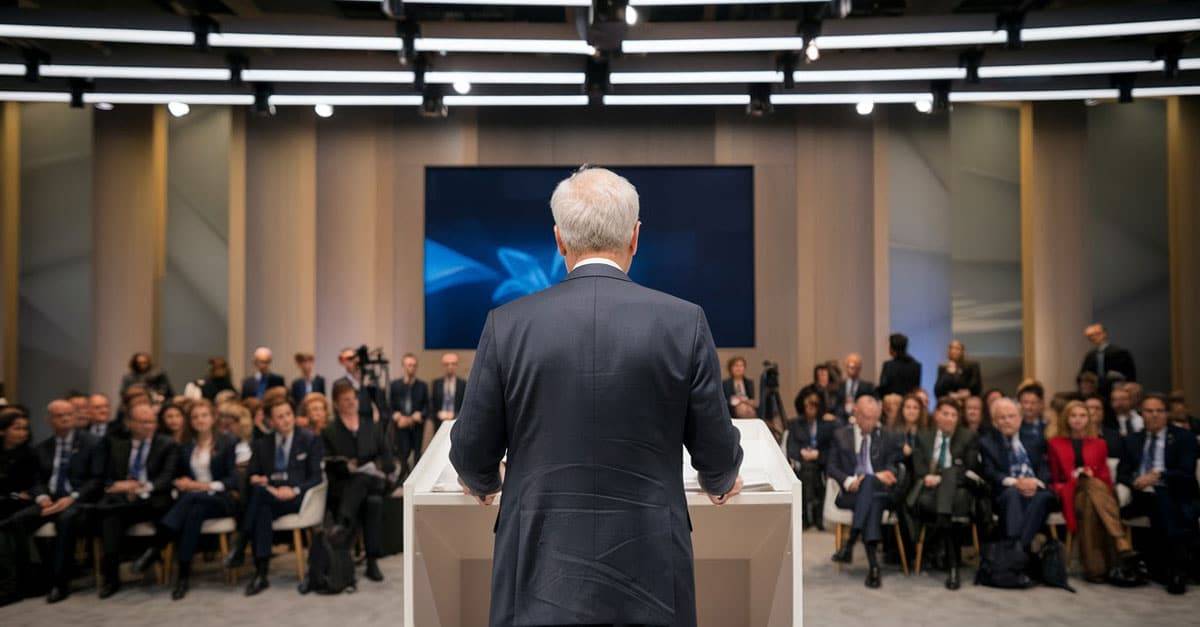The WEF’s motto, “Committed to Improving the State of the World”, reflects its commitment to sustainable, inclusive growth. As the world’s most influential gathering of leaders, the WEF provides UHNWIs with a unique opportunity to shape global narratives, engage in high-level discussions, and make a lasting impact.
A Gathering of Global Leaders
Participants at the WEF include a diverse range of influential figures, such as:
- CEOs of Fortune 500 companies
- Heads of state and government leaders
- Nobel laureates and academic thought leaders
- Cultural icons and activists
Notable attendees in recent years have included Sheryl Sandberg, or Bono, showcasing the breadth of voices and perspectives at the forum.
Davos 2025: A Hub for Global Decision-Makers
The Davos Summit 2025 will convene under the theme “Collaboration for the Intelligent Age”, emphasizing the convergence of transformative technologies such as artificial intelligence (AI), blockchain, and quantum computing. For UHNWIs, this summit presents an unparalleled opportunity to explore how emerging technologies can be harnessed to solve global challenges and shape future investment strategies.
This exclusive gathering in Davos, Switzerland focuses on addressing critical global issues such as economic stability, technological disruption, and environmental sustainability. The summit brings together over 70% senior leaders, ensuring that dialogues are both insightful and actionable. In 2025, Besides over 50 presidents and prime ministers from across the world, top officials of international organisations like the United Nations, IMF, World Bank, Interpol, NATO, European Central Bank and WTO are also expected to be in Davos for the WEF Annual Meeting 2025. While specific names for 2025 have yet to be announced, they will be revealed closer to the date, typically in conjunction with the announcement of speeches and panels.
Key Issues on the WEF 2025 Agenda
The Davos 2025 agenda will focus on five key areas, all of which present opportunities for UHNWIs to leverage their resources and expertise:
01 Reimagining Growth: Identifying new sources of economic growth amid the global transition to a post-pandemic economy. How can businesses balance short-term goals with long-term objectives in an evolving geopolitical landscape?
02 Industries in the Intelligent Age: Adapting business strategies to keep pace with technological advancements and geo-economic shifts. What role will AI and blockchain play in reshaping industries?
03 Investing in People: Addressing how investments in education, skills, and healthcare can build resilient societies. What strategies can UHNWIs adopt to ensure the long-term viability of human capital?
04 Safeguarding the Planet: Developing climate-resilient solutions and investing in green technologies to address global climate goals. How can UHNWIs catalyze climate action through strategic investments?
05 Rebuilding Trust: Navigating societal divides and fostering global cooperation. What role can UHNWIs play in supporting peacebuilding and equitable growth?
Learn more about the five key focus areas of WEF 2025 by visiting the official WEF 2025 page.
Scroll down to see Altoo’s take on the WEF 2025 topics and their relevance to digital wealth management.
Emerging Trends for UHNWIs at Davos 2025
Davos 2025 serves as a crucial platform for UHNWIs to explore and engage with the latest developments in AI, blockchain, climate finance, and global wealth distribution. It presents opportunities for strategic investments, ethical leadership, and impactful philanthropy, while also acknowledging the ongoing critique of wealth concentration and the role of elites in fostering inclusive growth.
Trend
Overview
Implications for UHNWIs
Global investments in AI are expected to surpass $500 billion by 2025, driving innovation in portfolio management.
Ethical AI applications in wealth management will become crucial for optimizing performance while maintaining responsible investment practices.
Blockchain for Transparency
By 2025, over 50% of Fortune 500 companies are set to adopt blockchain for greater financial transparency.
Blockchain will reshape how UHNWIs manage wealth, enhancing transparency in transactions and business practices.
$2.6 trillion in assets are set to be allocated to sustainable investments, with the WEF driving private capital mobilization for climate change projects.
UHNWIs will gain insights on investing in green finance initiatives and decarbonization projects to further sustainability goals.
Discussions on tackling global wealth inequality, with the top 1% controlling 46% of global wealth (Oxfam).
A critical forum for addressing inclusive growth, encouraging UHNWIs to engage in philanthropic ventures and equitable business practices.
Trend
Overview
Global investments in AI are expected to surpass $500 billion by 2025, driving innovation in portfolio management.
By 2025, over 50% of Fortune 500 companies are set to adopt blockchain for greater financial transparency.
$2.6 trillion in assets are set to be allocated to sustainable investments, with the WEF driving private capital mobilization for climate change projects.
Discussions on tackling global wealth inequality, with the top 1% controlling 46% of global wealth (Oxfam).
Implications for UHNWIs
Ethical AI applications in wealth management will become crucial for optimizing performance while maintaining responsible investment practices.
Blockchain will reshape how UHNWIs manage wealth, enhancing transparency in transactions and business practices.
UHNWIs will gain insights on investing in green finance initiatives and decarbonization projects to further sustainability goals.
A critical forum for addressing inclusive growth, encouraging UHNWIs to engage in philanthropic ventures and equitable business practices.
Source: Insights derived from information available on https://www.weforum.org
Voices of Influence: Key Lessons from UHNWIs and Thought Leaders at Davos
Revolutionizing Logistics and Championing Sustainability
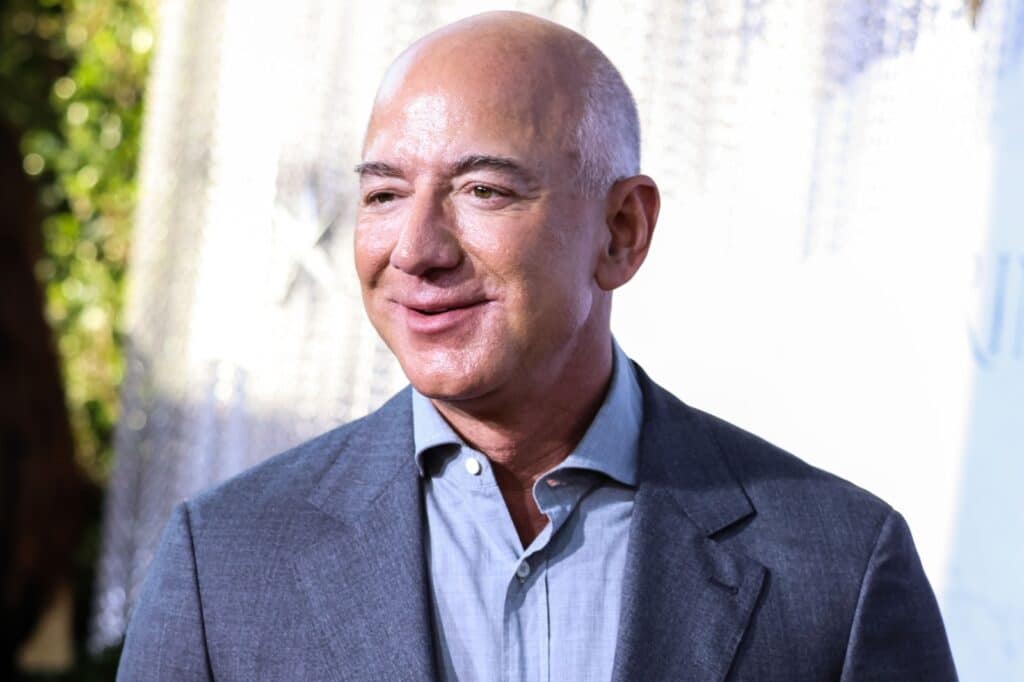
Jeff Bezos
Source: Depositphotos
Revolutionizing Logistics and Championing Sustainability
In 2024, Amazon founder Jeff Bezos highlighted the transformative potential of artificial intelligence (AI) in logistics, aiming to enhance efficiency and redefine customer experiences. He also showcased Amazon’s $10 billion Climate Pledge Fund, committed to achieving net-zero carbon emissions by 2040 through investments in sustainable technologies and practices.
Key Takeaway for UHNWIs: Bezos’s vision demonstrates the critical role of corporate responsibility in addressing climate change while unlocking new investment opportunities in green technology.
For a deeper dive into Jeff Bezos’s principles, explore this article.
Empowering Entrepreneurs Through Globalization

Jack Ma visited the WEF in Davos twice in 2015 and in 2018.
Source: Corporate Executives
Empowering Entrepreneurs Through Globalization
Alibaba founder Jack Ma has been a vocal advocate for e-commerce as a tool for poverty alleviation. In 2015, he highlighted how digital platforms can empower small businesses and entrepreneurs, particularly in developing regions. By 2018, Ma stressed the importance of globalization in creating inclusive trade policies that enable small enterprises to compete on a global scale, fostering economic growth and reducing inequality.
Key Takeaway for UHNWIs: Jack Ma emphasized that technology can empower small businesses to compete globally, driving economic growth and reducing inequality.
Watch Jack Ma’s additional interview at the WEF from 2018 here.
Investing in Global Health Innovation
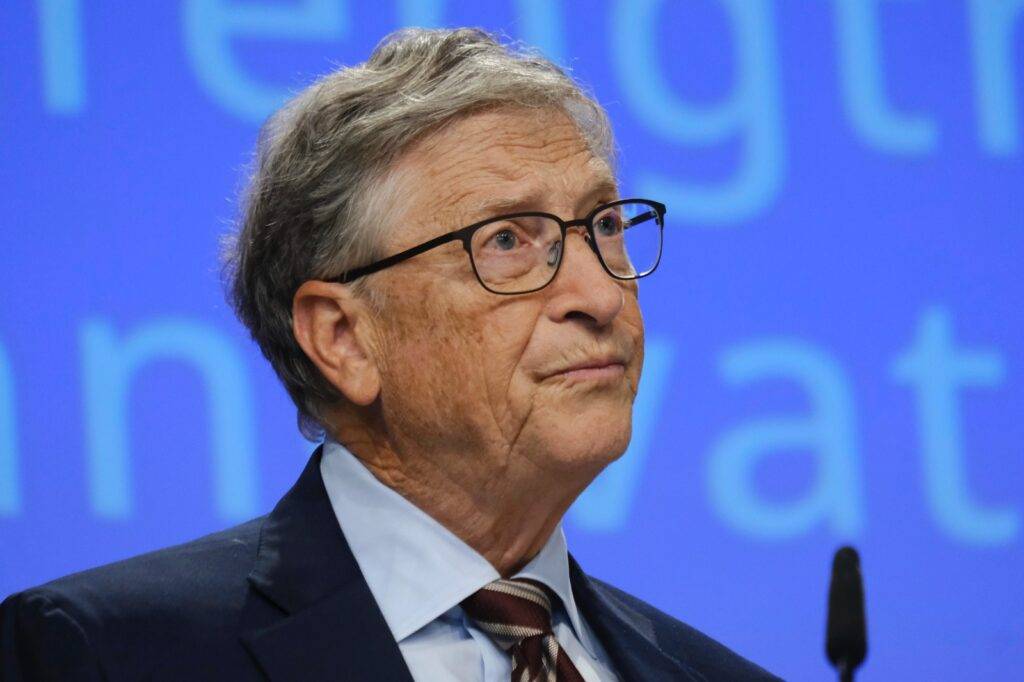
Bill Gates
Source: Depositphotos
Investing in Global Health Innovation
Bill Gates, co-chair of the Bill & Melinda Gates Foundation has consistently highlighted the critical role of innovation in addressing global health challenges. He advocates for equitable access to life-saving drugs and vaccines, emphasizing that technological advancements can bridge health disparities. Gates underscores the necessity of investing in health systems and regional bodies to prepare for future pandemics, stressing that proactive measures are essential for global health security.
Key Takeaway for UHNWIs: Strategic investments in health innovation and infrastructure not only yield substantial social impact but also present opportunities for sustainable returns.
Gain more insight into Bill Gates’s WEF address here.
Mastering Economic Cycles for Long-Term Success

Ray Dalio
Source: Wikimedia
Mastering Economic Cycles for Long-Term Success
Ray Dalio, founder of Bridgewater Associates, has shared his principles for navigating economic cycles, emphasizing the importance of understanding historical patterns and economic fundamentals. He advocates for diversification and risk management strategies to weather economic fluctuations. Dalio’s insights encourage UHNWIs to adopt a long-term perspective, focusing on sustainable growth and resilience in their investment portfolios.
Key Takeaway for UHNWIs: Implementing diversified investment strategies based on sound economic principles can enhance portfolio resilience and long-term wealth preservation.
Discover Ray Dalio’s insights at Davos here.
Rethinking Wealth: Insights from Davos Man
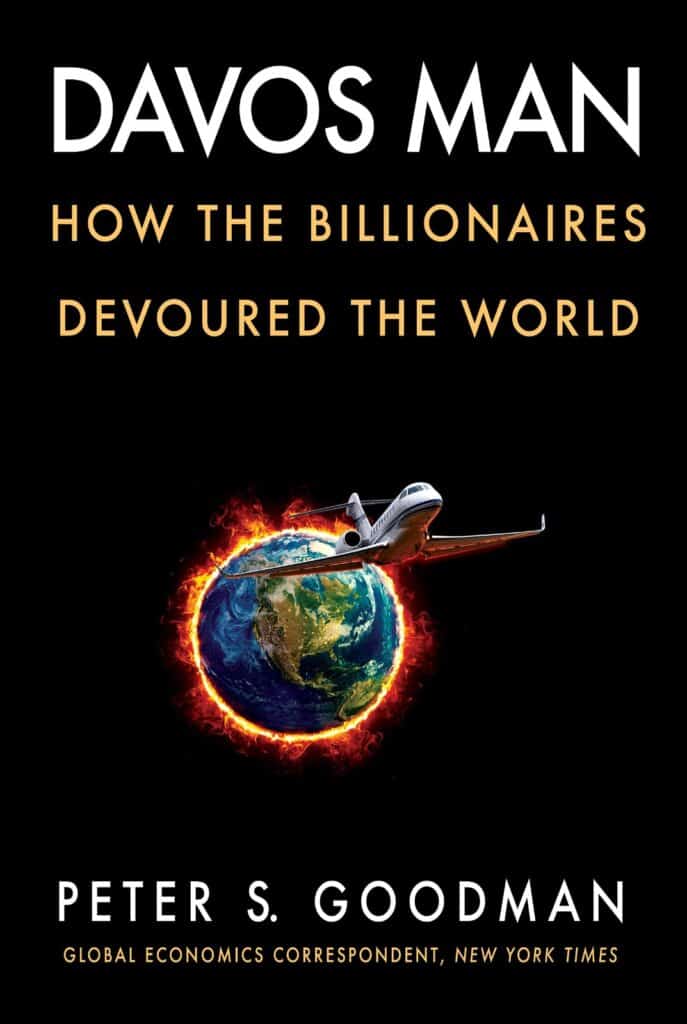
Source : Amazon
Rethinking Wealth: Insights from Davos Man
Analyzing Leadership and Influence
Peter S. Goodman’s book Davos Man provides a unique and for many not very known analysis of the global elite’s influence on modern capitalism, particularly those who gather at the World Economic Forum in Davos. The book examines how these leaders have shaped global economic systems, highlighting both the opportunities and challenges that come with immense wealth and influence.
Evolving Roles for UHNWIs
Goodman underscores the unique position UHNWIs hold in addressing critical global issues. With their resources and platforms, they have the ability to lead transformative change, from championing equitable practices to driving innovations in sustainability and governance. This analysis encourages UHNWIs to think beyond traditional wealth management and embrace roles as innovators and leaders in fostering systemic progress.
Shaping a Purposeful Legacy
The insights in Davos Man suggest that UHNWIs can align their financial strategies with broader societal goals. By supporting fair labor practices, promoting transparency, and investing in sustainable growth, they can ensure their influence contributes to long-term global stability and prosperity.
Key Takeaway for UHNWIs: Aligning wealth with purpose is not only a pathway to meaningful impact but also a means of securing a legacy that transcends financial success. As leaders in their respective fields, UHNWIs are uniquely positioned to bridge the gap between economic growth and societal equity, redefining success for future generations.
How can UHNWIs maximize their Impact at WEF Davos 2025?
To attend the exclusive WEF summit in Davos, UHNWIs typically receive invitations through membership with the WEF, which can range according to Business Insider from $60,000 to $600,000 annually. Participation allows UHNWIs to engage directly in high-level discussions, private meetings, and networking events with global leaders, policymakers, and innovators. They can form partnerships, shape investment trends, and contribute to important discussions on climate change, wealth distribution, and technological advancements. With travel, luxury accommodations, and additional event-related expenses, the total cost of attending can reach several hundred thousand Swiss Francs, but the value derived from these interactions is immense.
Private Meetings and Panels
UHNWIs can also participate in private meetings and panel discussions, where they have the chance to provide their insights or influence major global challenges, especially in areas such as finance, sustainability, technology, and social impact. These closed-door settings allow for focused, in-depth exchanges with top thought leaders.
Networking Events
Davos is renowned for its exclusive networking events, where UHNWIs can build relationships that extend beyond business deals. With over 65% of attendees securing partnerships worth over $1 million in 2022, the opportunities to collaborate and influence are unparalleled (Source: WEF participants study and information found on Researchgate). Connecting with fellow business magnates and innovators is essential for anyone looking to shape the future.
Hosting Private Events
UHNWIs can also host or sponsor private events within the Davos framework. These exclusive gatherings provide an intimate environment to discuss niche topics, foster new business opportunities, and connect with key stakeholders in a highly curated setting.
Virtual Participation
For UHNWIs unable to attend in person, WEF’s digital platforms – such as YouTube and the WEF website – allow for virtual participation. This provides access to key sessions, events, and discussions on emerging global trends, enabling UHNWIs to stay informed and make data-driven decisions on wealth management, sustainability, and investment strategies.
Adding to these insights, the Global Cooperation Barometer 2025, a joint initiative by the World Economic Forum and McKinsey & Company, serves as a pioneering tool to measure and guide collaboration across five critical areas: trade, technology, climate, health, and security. By analyzing data from governments, businesses, and civil society, the Barometer highlights the current state of global cooperation and offers actionable recommendations to strengthen business partnerships.
Virtual access, combined with tools like the Global Cooperation Barometer, empowers UHNWIs to engage with the WEF’s agenda effectively – whether from Davos or afar – ensuring their influence and strategies remain at the forefront of global progress.
Davos Beyond the Deals
Davos. The name is synonymous with global influence, high-level discourse, and the annual gathering of the World Economic Forum. At the same time, Davos offers a unique value proposition that extends far beyond the confines of the Congress Centre. Here’s a curated look at how to maximize time in Davos beyond the formal agenda.

Private Alpine Flight
A private helicopter charter offers more than just breathtaking views of the Swiss Alps; it provides a powerful shift in perspective. The uninterrupted focus, combined with the awe-inspiring scenery, facilitates a unique form of mental recalibration, enhancing both strategic clarity and personal well-being.

Exclusive Skiing and Snow Experiences
Maintaining peak performance often involves incorporating physical activity. Davos’s world-class skiing offers recreation and a focused challenge that sharpens the mind.

Indulgent Spa Retreats
Davos’s exclusive spas provide strategic rejuvenation and support a holistic approach to well-being. The focus is on targeted therapies, personalized programs, and discreet service.
Driving Philanthropy at Davos
The WEF is a powerful force in philanthropy that aligns with the organisation’s goals. For example, in 2023 the WEF launched the Giving to Amplify Earth Action (GAEA) to mobilize philanthropic partnerships to address climate change and biodiversity loss. The initiative seeks to unlock $3 trillion annually needed for climate solutions by fostering collaboration among over 140 partners, including major foundations and corporations. Within the GAEA, the Corporate Philanthropy Challenge for People and Planet encourages corporate foundations to contribute at least $1 billion towards climate philanthropy by 2030.
Notable WEF participants involved in other major charitable initiatives include:
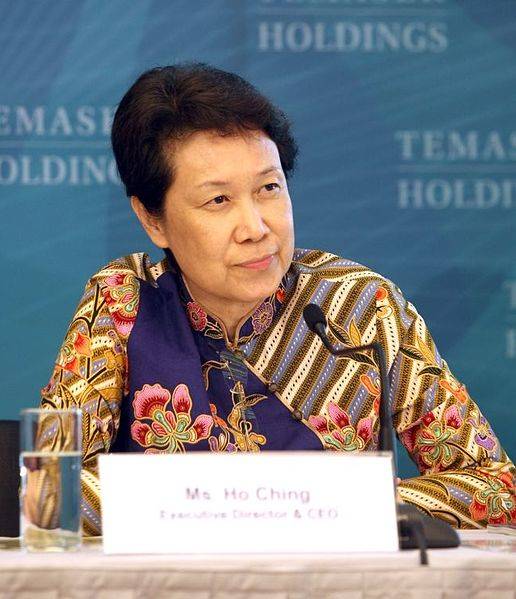
Source: Wikimedia
Ho Ching, former CEO Singaporean soverign wealth fund Temasek Holdings. She now serves as of chair of Temasek Trust, a non-profit philanthropic trust that leads the Philanthropy Asia Alliance.

Source: Wikimedia
Shamina Singh, the Founder & President of the Center for Inclusive Growth, the social impact hub of Mastercard.

Source: Wikimedia
Ray Dalio, whose Dalio Foundation supports various causes, including education, health, and community development.
Frequently Asked Questions (FAQs) about the World Economic Forum (WEF)
The World Economic Forum is an independent international organization committed to improving the state of the world by engaging business, political, academic, and other leaders in collaborative efforts to address global challenges.
The WEF’s annual meeting is traditionally held in Davos, Switzerland. In addition to the main event, the WEF hosts Open Forum sessions at various global locations, including Cambodia, India, Jordan, Vietnam, and Saudi Arabia.
Attendance at the WEF is by invitation only. Invitations are typically extended to top business leaders, policymakers, academics, and philanthropists. Individuals interested in participating can explore membership opportunities or engage with the WEF’s global digital community.
The WEF does not publicly disclose specific attendance costs. However, estimates suggest that the total cost for UHNWIs can reach several hundred thousand Swiss francs, considering membership fees, travel, accommodation, and event-related expenses.
The Open Forum is a series of public sessions organized by the WEF, featuring discussions on global issues. These sessions are held at the Swiss Alpine School in Davos and at selected global locations.
The Open Forum is open to the public. Individuals can attend sessions by registering through the WEF’s official website. Details about upcoming sessions and registration information are available on the WEF’s Open Forum page.
For inquiries, individuals can visit the WEF’s contact page, which provides information on various communication channels, including email addresses for specific departments.
To stay informed about WEF events and initiatives, individuals can follow the WEF on social media platforms such as X, Instagram, LinkedIn, and Facebook. Additionally, subscribing to the WEF’s newsletter and regularly visiting their official website provides access to the latest news and updates.
You can find further information to the most frequent questions about the World Economic Forum here.
